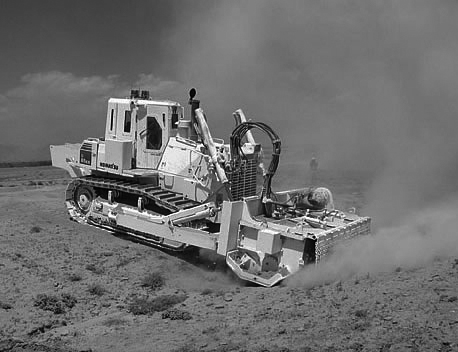Japan's Official Development Assistance White Paper 2009
(3) Unexploded Ordinance, Anti-Personnel Landmines, Small Arms and Light Weapons (SALW), Etc.
In regions that were once in conflict, anti-personnel landmines and unexploded ordinance such as cluster munitions still remain, and illicit small arms and light weapons (SALW) are widespread. These indiscriminately kill and injure even non-combatants including children. They not only hinder reconstruction and development activities, but they can also cause the recurrence of conflicts. Assistance with consideration given to domestic stability and security, such as the removal of unexploded ordinance and landmines, the collection and destruction of SALW, and capacity building for landmine victims, is important.
<Japan's Efforts>
In regard to cluster munitions, Convention on Cluster Munitions was adopted in 2008, and in December that year it was signed by 94 countries, including Japan. Japan has been continuously providing the international cooperation and support stipulated in this convention. For example, Japan has provided assistance of approximately ¥338 million over about three years starting in 2007 (scheduled to end in December 2009) to a project carried out by the Department of Peacekeeping Operations (DPKO), United Nations Mine Action Service (UNMAS) and United Nations Development Programme (UNDP) in Lebanon. This project is supported by the United Nations Trust Fund for Human Security. It aims to achieve economic rehabilitation and the removal of unexploded ordinances through activities such as job training in regions affected by cluster munitions.
As for anti-personnel landmines, since the first Review Conference of the Convention on the Prohibition of the Use, Stockpiling, Production and Transfer of Anti-Personnel Mines and on Their Destruction (Ottawa Convention) held in 2004, Japan has been providing assistance for mine action, with an emphasis on Asia, the Middle East, and Africa. The assistance follows three principles: (1) contribution to peacebuilding; (2) valuing the perspective of human security; and (3) close cooperation with the government, civil society, the private sector, and academia, to promote technological development. As part of cooperation with the government, civil society, the private sector, and academia, Japan has been supporting verification tests of Japanese-made landmine removal machines in Cambodia and Afghanistan. Japan provided the government of Cambodia three Japanese-made landmine removal machines that had passed verification tests in the country in January 2009.
In regard to measures against small arms and light weapons (SALW), Japan provides support for the collection, disposal, and appropriate stockpile management of SALW in combination with development assistance. Furthermore, Japan contributes to the improvement of relevant legal systems and capacity building for law enforcement agencies aimed at strengthening the control of the import and export of weapons, boosting the ability to carry out crackdowns, and improving public security. Japan also carries out disarmament and social reintegration projects for former soldiers and former child soldiers and awareness raising activities related to SALW, and holds seminars by experts. For example, Japan is carrying out development projects along with the reduction of SALW through the UNDP in Liberia. Japan is giving assistance for the development of social infrastructure and the self-sustainability and rehabilitation of communities, combined with the support for ensuring domestic security through capacity building of the national police in Liberia.

Antipersonnel landmine removal machine that was demonstration tested onsite in Afghanistan (Photo: Komatsu)
